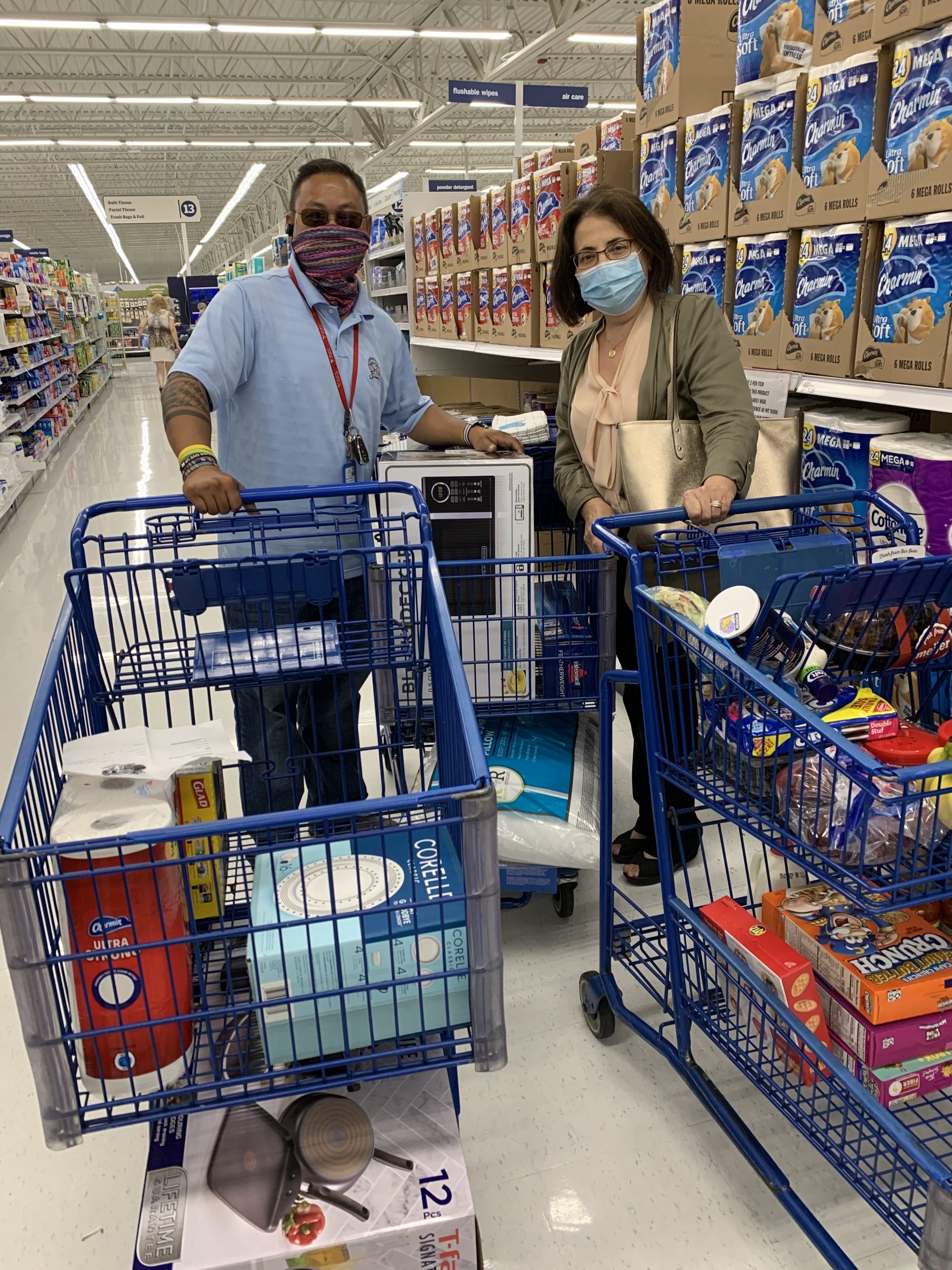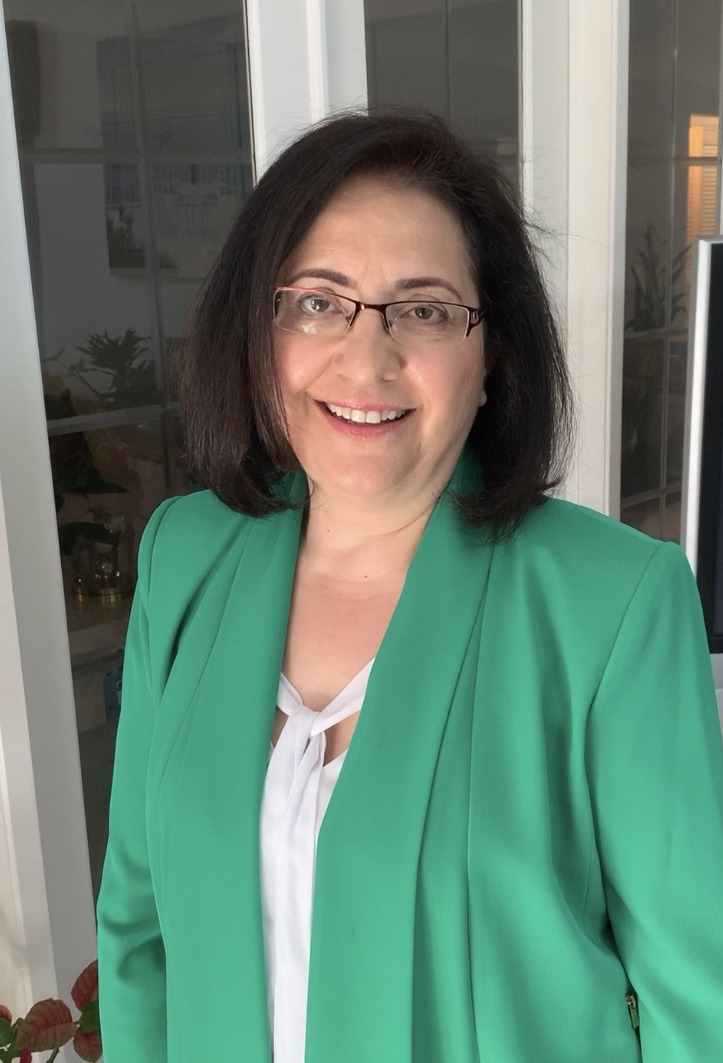For Detroit, 2019 and 2020 were polar opposites — but not in the way you may think. Even during the depths of 2020’s coronavirus pandemic, this community forged ahead in their work to end veteran homelessness.
“In 2019, our numbers were not trending well in the right direction as much as we wanted them to,” explained Candace Morgan, Built for Zero Systems Transformation Advisor for Detroit.
“The staff at the agencies who are doing the heavy lifting and the work have been phenomenal. The whole community has been great.”
candace Morgan, bfz systems transformation advisor
But that changed in 2020, as they closed the year out with only 170 veterans on their by-name list of all veterans experiencing homelessness. Overall, they reduced their veteran homelessness by 33% in 2020, surpassing their goal of 30%.
Through the Covid-19 pandemic, the Detroit team successfully secured housing for 216 veterans by leaning into collaboration across the community, which includes three Supportive Services for Veteran Families (SSVF) providers — Southwest Solutions, VOA Michigan, and Bluewater Center for Independent Living. This was accomplished by moving at-risk veterans in hotels and into permanent housing, using data to target efforts and resources, with an increased focus on preventing homelessness.
“The staff at the agencies who are doing the heavy lifting and the work have been phenomenal,” Morgan said. “The whole community has been great.”
Hotels to housing
Read one veteran’s story of his experience living in a hotel and connecting with fellow veterans during the pandemic.
Like many communities, the Detroit team quickly moved their highest risk veterans — like those who were elderly, vulnerable, or had medical issues — out of congregate shelters or unsheltered, unsafe environments and into quarantine and isolation hotels.
Beginning in the spring of 2020, the team also received technical support from Tom Albanese, consultant and VA Technical Assistance provider, who helped to improve their processes and bring more efficiency to their endeavors.
When they began housing clients in hotels, they had a process on board immediately because of their weekly meetings with Albanese, Morgan explained. The team put together shared policies and procedures for this emergency hotel use, including a participation agreement that each of the organizations uses with veterans in the hotels.
“We workshopped that together because it was really about getting everyone’s best thinking in it and making sure it was consistent with best practices,” Albanese said.
The Detroit team was determined to not only shelter their veterans in hotels, but to ensure they would subsequently move to permanent housing and not return to homelessness. Program and case managers regularly encouraged the veteran residents of the hotel, asking them to help identify communities or housing units they would want to move to.
Sama Harp, SSVF East Senior Program Manager, started at VOA Michigan in January 2020, right at the beginning of the pandemic. But she knew the goal remained helping to secure permanent housing for veterans, rather than just sheltering them. As she explained, “It’s an indicator of good outcomes when vets are on board with their housing plan and we want to get them to permanent housing.”
The team has made incredible progress. Since April 2020, Southwest Solutions has placed 37 veterans in hotels, 25 of which have since secured permanent housing. VOA was sheltering 51 veterans in hotels and has moved 44 to permanent housing, and Bluewater had one veteran in a hotel who has since secured permanent housing. As of March 2021, the SSVF providers only have two veterans left living in the hotels.
“It’s a great feeling to know we’ve kept them safe the whole time,” Harp said.

Photo by Alex Brisbey on Unsplash
Smarter together
The team was able to accomplish this work with support and cooperation across several agencies and organizations — most crucially, the VA.
“One of the things that’s great in Detroit is our local VA’s involvement with the homeless system,” Morgan said. “They’re at every veteran table.”
Beginning at the start of the pandemic in 2020, the Detroit team ramped up their case conferencing practice, a weekly meeting that goes through their by-name list to find housing solutions for each person. Representatives from the Continuum of Care, VA, SSVF providers, community navigators, the coordinated entry system, and everyone else associated with working with the veteran population attend these collaborative, resource-sharing meetings.
“The SSVF providers in Detroit have really looked beyond their own agency considerations,” Albanese commented. “It was just great work to collaborate with their partners to make sure veteran needs are being met.”
The team revamped their case conferencing meetings in 2020, helping to improve their practices and outcomes. A smaller case conferencing group began meeting once a week to go through their veteran by-name list with a more intentional focus on the veterans in the hotels. “We were able to really see who was there, and see if they needed to be moved to our active list,” Morgan said. “We were able to see it almost in real time since it was walked through every week.”
“Now we talk about people with everyone — who has a resource, what’s going on with him, how can we drill down faster?” Morgan explained.
The SSVF partners used this critical tool to utilize new CARES Act funding and resources for emergency housing or hotel assistance. Weekly case conferencing also helped them to provide services and assistance to veterans who were in more physically remote locations, requiring the team to be more strategic and creative in problem-solving.
“There was definitely an increased use in case conferencing to problem solve these more challenging situations,” Albanese commented. “Systems work best when they’re not working in silos. And I always say — we’re just smarter together.”
Turning off the faucet
Throughout the pandemic, the Detroit team has sought to address potential sources of inflow into homelessness. Additional funding provided by the federal stimulus package has allowed providers to do more targeted prevention and serve all veterans imminently at-risk of homelessness.
“It’s like a tub — we’re going to open the drain as we turn off the faucet. And the more we can turn off the faucet, the more we drain the tub.”
Tom ALBANESE, VA Technical Assistance Provider
“It’s like a tub — we’re going to open the drain as we turn off the faucet,” Albanese said. “And the more we can turn off the faucet, the more we drain the tub.”
The team has increased community awareness of SSVF housing prevention assistance through proactive outreach at various community agencies. VOA also regularly reached out to see if landlords had any veteran tenants who might be facing eviction once the moratorium is lifted, wanting to intervene and assist with payments and help with housing to divert the veteran from possible homelessness.
As Albanese explained, “This will lead to a much better ability to focus on veterans who are most imminently at risk — who are within a night, or maybe a few nights or a few weeks, of becoming literally homeless versus just behind on their rent.”
These efforts were supported by the fact that Detroit recently merged their veteran coordinated entry system — the process designed to efficiently and effectively connect people to housing and services to rapidly end their homelessness — with the community coordinated entry system. “As the veterans’ system gets incorporated into the broader system, I think there will be an even better emphasis on diversion as a fundamental housing-first approach,” Albanese said. “I think there will be even more opportunity to reduce inflow.”
The partners are building their capacity and investing more in this area, which also involves adding community access points to the system. As Albanese explained, the question is, “How do we get into those neighborhoods where very low-income veterans and very low-income households reside, where they can more readily find help, instead of waiting for them to come to us?”

Flexibility in funding
Oftentimes, budgeting and planning are two of the greatest obstacles in the way of securing and maintaining permanent housing. The pandemic has allowed for increased flexibility with how SSVF funds are allocated and used. For example, caps on the number of months the funds could provide utility or rental assistance have been removed.
One solution that the community of Detroit has had success with is Rocket Mortgage’s Housing Fund for Veterans. These non-restricted funds provide money directly to veterans as a safety net. “It’s good to have, and it’s something that hasn’t been done before — at least not in Detroit,” Morgan explained.
The program just began in late 2020, but the savings of up to $1000 has been incredibly helpful as veterans move into permanent housing. “It’s very exciting to see those kinds of flex funds in the community,” Harp agreed.

“A housing unit is more than an address where you receive packages and mail. It’s psychological. It’s my home. It plays such a big part in our veterans’ minds.”
— Sama Harp, VOA Michigan
More than an address
The Detroit team has set their gaze on functionally ending veteran homelessness across the city. “There’s been a focused persistence and commitment to getting to functional zero and the federal criteria and benchmarks as well,” Albanese noted. “It was difficult during the early part of the pandemic, but we’ve refocused on those goals in the fall.”
Members of the team know that this is not just a broad, numerical goal, but one with personal, individual impact and meaning.
“A housing unit is more than an address where you receive packages and mail,” Harp explained. “It’s psychological. It’s my home. It plays such a big part in our veterans’ minds.”




